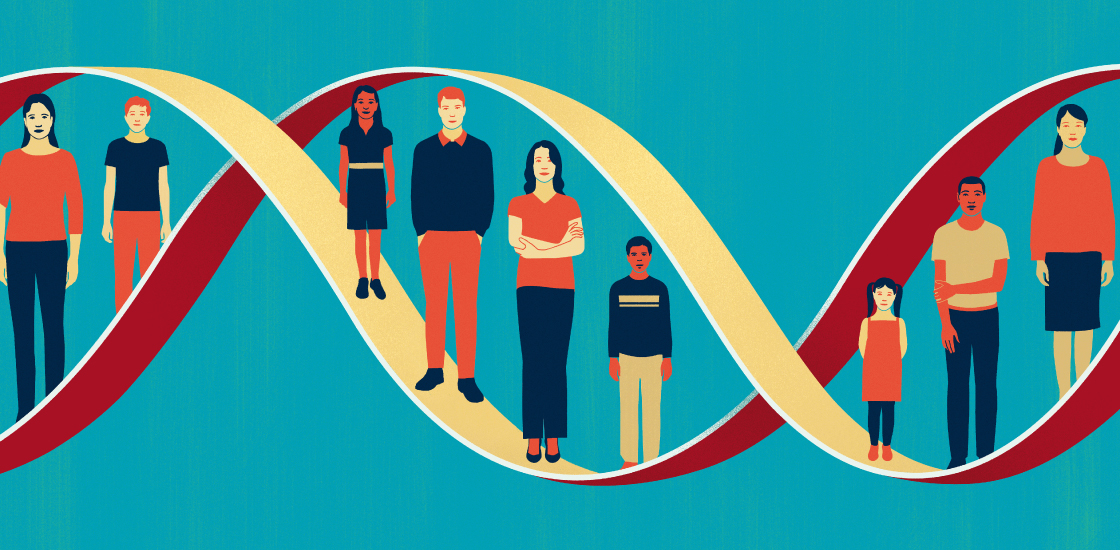The United Kingdom’s top health research ethics authority has given its nod of approval to Spectrum 10K, the autism genetics study that came under intense scrutiny when it launched in August last year.
Based at the University of Cambridge and led by Simon Baron-Cohen, director of the Autism Research Centre there, Spectrum 10K aims to collect genomes from 10,000 autistic people, which would make it the U.K.’s largest autism study. But the team paused recruitment less than three weeks after launch, in response to questions from autistic advocates and some researchers about the study’s goals and practices.
Research ethics committees in England and Scotland had already approved Spectrum 10K. But after the study launched, questions and complaints reached the Health Research Authority (HRA), the branch of the U.K. federal health department that oversees the ethics committees, prompting the agency to initiate its own review in September.
Among the concerns, according to a 20 May statement from the HRA: Researchers affiliated with the project may have previously worked toward “curing” autism; Spectrum 10K did not prioritize autistic people’s perspectives or safety; the consent process was unclear; and genetic data were not properly safeguarded.
After its review, the HRA concluded that the English ethics committee’s initial approval “still stands” — a requirement for the study to restart. The HRA also praised the research team’s decision to pause recruitment and conduct further review but requested more information.
For example, the English ethics committee, with whom the HRA consulted, is “not yet satisfied” that Spectrum 10K has provided enough support for autistic people who experience emotional distress about the study.
The HRA has also asked Spectrum 10K to modify its informed-consent documents, including explaining the planned use of participants’ genetic data. The study team told the HRA that “data will not be shared for the purpose of developing a prenatal test for autism or a cure for autism.” Spectrum 10K registered 4,388 participants before the study was paused, according to the HRA, including 99 caregivers of autistic adults who don’t have the cognitive ability to self-consent.
It’s crucial that the HRA not approve Spectrum 10K before a data policy co-designed with autistic people is in place, says Sarah Douglas, an autistic research advisor based in the U.K. That policy needs to include “real consequences” for sharing genetic data for purposes not approved by autistic people, she says.
“For me, it’s the heart of the matter,” Douglas says. “There needs to be a system of monitoring who wants to access the material, and autistic people need to be part of this policing.”
“We are pleased that the HRA has announced that the original ethics opinion for Spectrum 10K still stands,” says Tracey Parsons, communications manager for the Autism Research Centre. “We look forward to continuing this work with the autism community to find ways to improve Spectrum 10K.”
S
pectrum 10K is conducting its own review to identify any changes needed before the project restarts. The team has decided on guidelines for the review, the first step in a three-phase process, according to a 23 May announcement on Spectrum 10K’s website. The team aims to design the review this June and run it in August and September. They do not yet have a planned restart date for the study, Parsons says.And Spectrum 10K can’t provide all requested details to the HRA, such as new consent forms, until after the project’s own review is complete, she says.
Spectrum 10K will need to present its revised study to the ethics committee before it can restart, an HRA spokesperson told Spectrum.
This past October, Spectrum 10K hired London-based consulting firm Hopkins Van Mil to facilitate the design of a committee that would help reshape the study. From December through February, the firm held discussions with 29 people, 23 of whom have autism. Spectrum 10K is not naming the participants, citing a need for anonymity during the process.
Based on the discussions, Spectrum 10K is recruiting at least one autistic person to co-lead the review. They also aim to recruit “as many people as possible” to participate in the review itself, including autistic people — with and without intellectual disability and with varying verbal abilities, as well as some who conduct research — parents, clinicians, scientists and bioethicists, some of whom should be “critical” of Spectrum 10K, according to the project’s 23 May statement.
The team’s update looks “promising,” Douglas says. “Autistic people are being treated with more respect now.”
Even though the HRA and Spectrum 10K are doing due diligence now, the need to reexamine the study after its launch illustrates how research funding mechanisms don’t prioritize ethics and public engagement, says Ilina Singh, professor of neuroscience and society at the University of Oxford in England. Such work is “not an aside; it’s not an afterthought; it’s not something that is unworthy of being part of research design,” she says. “It should be in research design from the very start.”
Spectrum 10K’s review “looks like it will be valuable,” Singh says. “My question is, to what extent does any of this actually change the way the research is going to be done?”
Those details will be essential, says Christina Nicolaidis, professor of social work at Portland State University in Oregon. “The results of the first phase of Spectrum 10K team’s consultation with the autistic community sound very promising. But as always, actions speak louder than words.”






